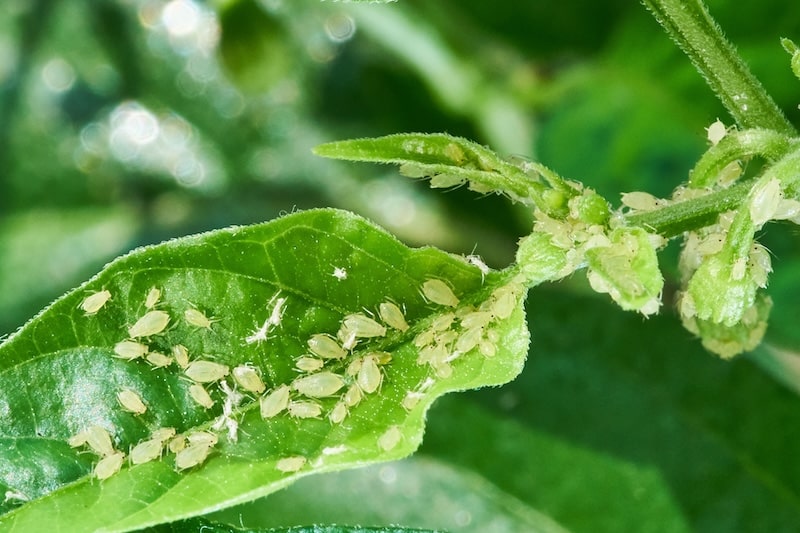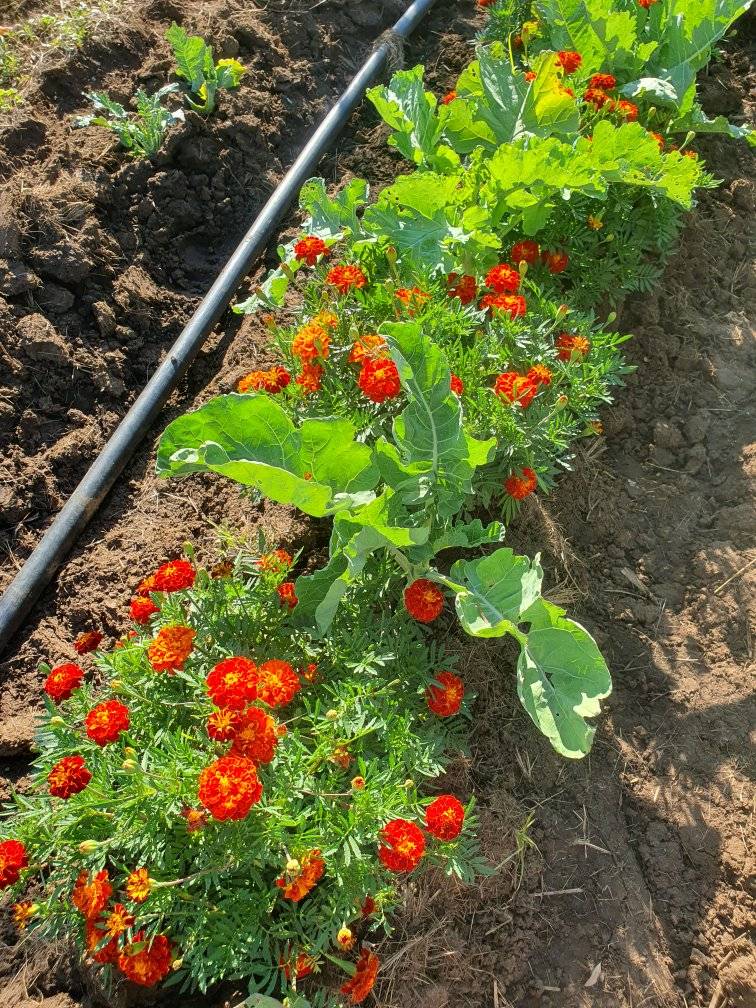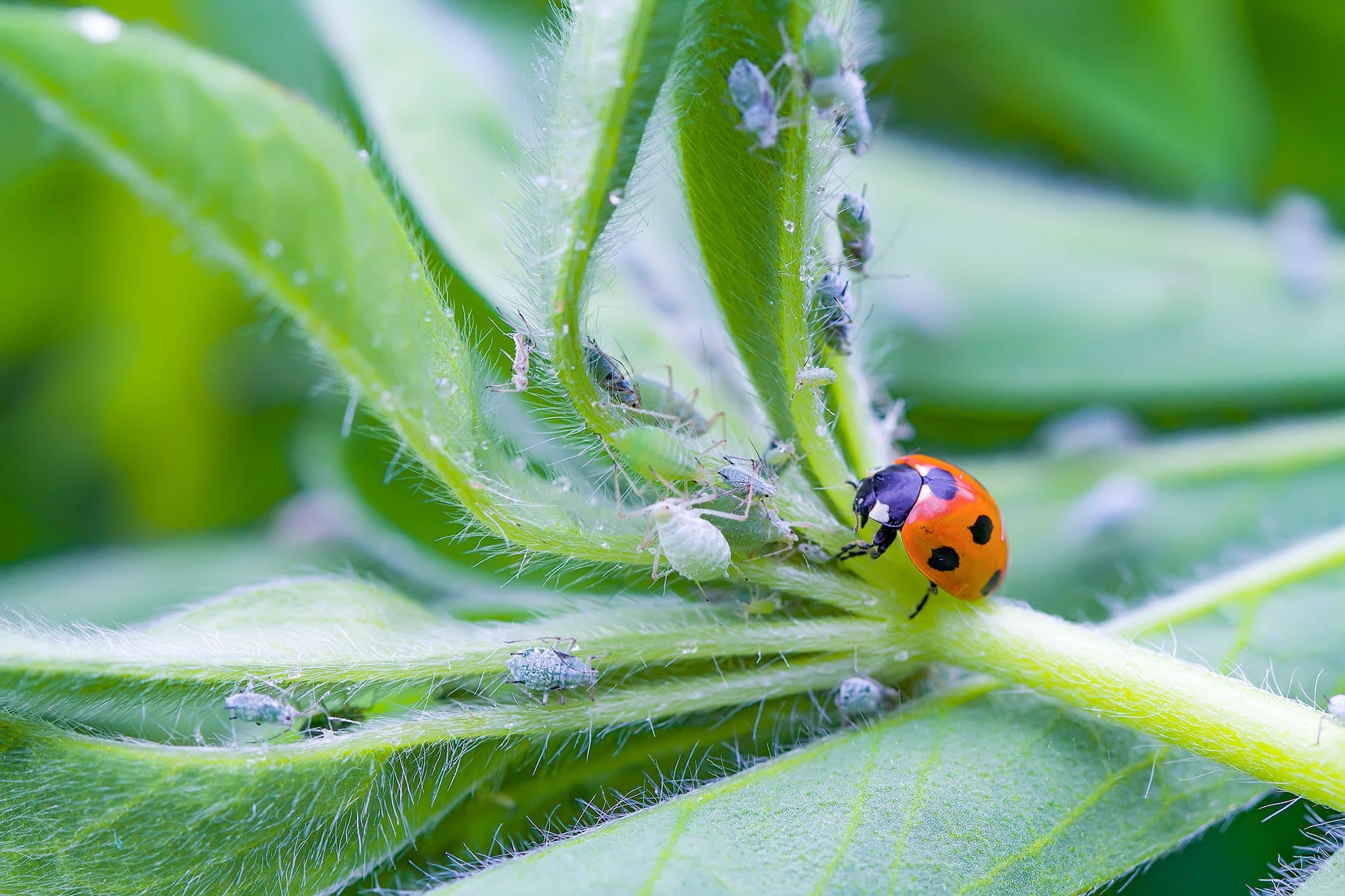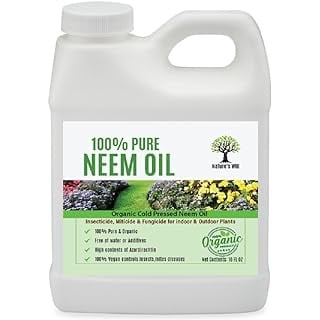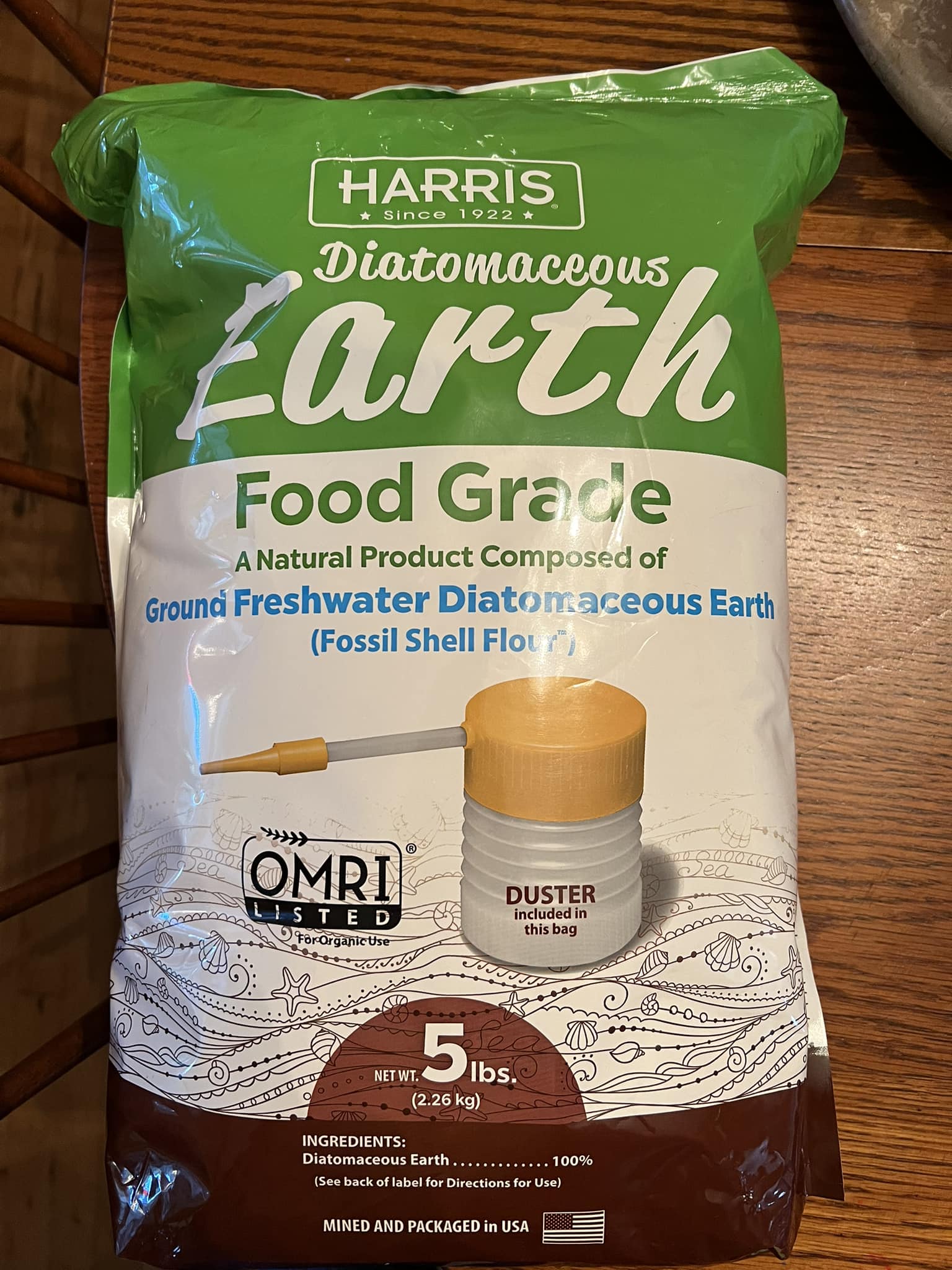Are aphids causing problems in your garden, sacking the sap out of your plants, and compromising their health? While they won’t bite you, aphids are a bane to plants. In colossal numbers, these small, wingless insects can cause a great deal of damage to plants, damaging fruits and flowers.
For your garden’s sake, get the aphid population under control before they reproduce because they multiply quickly. Acting early significantly improves your odds of saving your garden.
When it comes to aphid control, go the natural methods route to avoid harming beneficial insects.
How To Get Rid Of Aphids In The Garden
1. Blast Them with Water
Go for this approach if you want the fastest and safest way to eliminate these annoying insects. Another upside is that it offers immediate results and is cost-effective.
A strong water jet can knock over aphids from leaves, buds, and stems. This works because aphids are soft, small-bodied insects.
Make sure the water pressure is gentle but firm because excessive pressure can damage plants. Also, repeat the water blasting process several times over a few days or weeks if need be.
Read More:
- Tips on How to Get Rid of Squash Bugs Naturally
- How To Get Rid Of Ants In Potted Plants
- How To Keep Squirrels Out Of Garden
- How To Get Rid Of Spider Mites On Plants Naturally
2. Crush Aphids With Your Fingers
Skip this if you are squeamish, as it is unpleasant, especially if you are averse to handling insects. However, if you can handle it, crushing the aphids with your fingers presents a non-toxic method of eliminating a small aphid population.
Carefully grasp infested plant parts between your thumb and forefinger and gently squeeze or rub the aphids between your fingers to crush them. Alternatively, use a tissue or cloth to wipe away the aphids from the plant surfaces.
Be careful not to crush beneficial insects. After crushing the aphids, discard them in a sealed bag or container, compost them if appropriate, or squish them onto a hard surface and clean up afterward.
Be thorough when inspecting the plants and removing the aphids to keep them from spreading to unaffected plant parts or neighboring plants.
3. Companion Planting
Protect aphid-susceptible plants by introducing plants that naturally repel aphids to your garden. Companion planting harnesses the natural defenses of plants to deter pests like aphids without the need for chemical pesticides. It also lowers the reliance on synthetic fertilizers and pesticides.
Read More:
Plants known to repel aphids include marigolds, dill, fennel, calendula, lavender, and nasturtiums. Allium plants, such as onions, chives, and garlic, contain compounds that repel aphids. In addition, many aromatic herbs like mint, basil, rosemary, thyme, and chives emit strong scents that repel aphids.
4. Keep A Clean Garden and Prune Your Plants
A clean and tidy garden environment and well-pruned plants help disrupt aphids’ reproductive cycles and reduce their numbers. Prune and discard infested plant sections to stop aphids from attacking other plants.
Deprive aphids of potential areas to shelter and lay eggs by regularly removing weeds, fallen leaves, and debris from your garden.
5. Attract Beneficial Insects That Eat Aphids
Let other insects handle the aphids in your garden for you. There are many beneficial insects that feed on aphids; they include ladybugs, lacewings, hoverflies, and parasitic wasps.
Incorporate plants like dill, fennel, tansy, cilantro, and yarrow to attract these natural predators to your garden. Also, add plants that produce abundant nectar and pollen, such as lavender, salvia, coneflowers, sunflowers, and native wildflowers, to attract pollinators and predatory insects.
Choose flowers with simple, open, and easily accessible blooms. Plant them in drifts or clusters to make it easier for insects to locate and access food sources.
Additionally, avoid using broad-spectrum insecticides to preserve these beneficial insects and allow them to keep aphid populations in check. Beneficial insects need a place to nest and shelter, so have plants of different heights in your garden.
You can also install insect hotels or nesting boxes to provide additional nesting opportunities for beneficial insects like solitary bees and predatory wasps. Buying beneficial insects online or from a garden center is also an option.
6. Neem Oil
For a multifaceted approach to aphid control, I suggest using neem oil. When aphids come into contact with neem oil on the plant surface, the bitter taste or odor of the oil may deter them from feeding on the plants.
Also, neem oil’s key insecticidal compound, azadirachtin, is an antifeedant. It also disrupts aphids’ hormonal balance and development and smothers them. By disrupting the various metabolic processes of aphids, including digestion and nutrient absorption, the insects will starve, weaken, and eventually die.
Dilute neem oil and some liquid or insecticidal soap, then pour the solution into a spray bottle or garden sprayer. Next, thoroughly coat the infested plants’ foliage with the neem oil spray. Include the tops and bottoms of leaves, stems, and buds.
7. Diatomaceous Earth
DE is a valuable pest control and gardening tool because of its natural properties and low environmental impact. Dust the leaves with DE, and upon contact with the aphids, the particles will compromise their exoskeletons’ outer layer, eventually causing death.
8. Garlic Spray
Gardeners have long relied on garlic to control pests. This root vegetable contains sulfur compounds and other bioactive substances that repel aphids and other pests while providing numerous health benefits for plants.
Garlic spray emits strong odors and flavors that deter aphids from feeding on treated plants. Follow the procedure below to create garlic spray to deter aphids:
- Crush or finely mince several cloves of fresh garlic.
- Place the minced garlic in a container, add 2 tbsps of mineral oil, cover, and let it steep for at least 24 hours, preferably longer, to extract its active compounds.
- Strain the mixture to remove solid particles and obtain a clear liquid. Discard the garlic solids or compost them if desired.
- Dilute the strained garlic solution with water, then add some mild liquid or insecticidal soap to enhance its effectiveness by helping the solution adhere to plant surfaces and improve coverage.
- Stir or mix the solution thoroughly to ensure all the ingredients mix well.
- Test the spray on a tiny patch and wait 24-48 hours to make sure it doesn’t adversely affect your plants.
- Liberally spray the garlic solution onto the infested plants’ foliage.
9. Insecticidal Soap
These specially formulated soaps kill soft-bodied insects. That’s not all; besides helping you control these insects, they are safe for plants, people, and beneficial insects as long as you use them as directed.
Insecticidal soaps disrupt the outer layer of the aphid’s body, leading to dehydration and, ultimately, death. Before using insecticidal soaps, follow the manufacturer’s instructions on the dilution rates, application methods, and safety precautions.
Do not exceed the recommended concentration because this could lead to leaf damage.
10. Soapy Water
Like insecticidal soap, soapy water suffocates and dehydrates aphids upon contact, leading to their demise. This simple, effective homemade remedy is non-toxic and environmentally friendly. Also, the ingredients for making soapy water are inexpensive and readily available.
Moreover, it is simple to make and apply and hence suitable for both novice and experienced gardeners. Use soapy water sparingly and avoid excessive applications since prolonged use can cause soap residue buildup on plant surfaces and disrupt natural ecosystems.
So, we’ve covered how soapy water works against aphids and the necessary precautions. But how do you prepare it?
- Mix water with mild dish soap.
- Use approximately 1-2 teaspoons of soap per gallon of water.
- Shake the mixture to ensure the soap and water mix thoroughly. Doing so creates a uniform solution that effectively coats the aphids and their eggs.
- Generously spray the solution on the plants, ensuring it fully covers the aphids.
- Let the solution sit on the plant surface for a few hours, and then gently rinse the treated plants with water to remove any residue. This step helps prevent soap buildup on plant surfaces and reduces the risk of leaf damage.
Note
Avoid harsh detergents or soaps with additives like bleach or fragrance, as they may harm plants.
11. Use Alcohol
You can effectively eliminate aphids using alcohol, specifically isopropyl alcohol or rubbing alcohol. Upon contact, the alcohol will desiccate and dehydrate the aphids. Mix isopropyl alcohol or rubbing alcohol with water and thoroughly spray the affected plants.
Test the mixture prior to applying it to a bigger one. To keep your plants safe, avoid using undiluted alcohol or using high alcohol concentrations.
12. Eliminate Ants
This is a more indirect approach to ant eradication. Ants often “farm” aphids because they secrete honeydew, which ants collect as food. Eliminating ants disrupts the symbiotic relationship between ants and aphids, making it more difficult for aphids to thrive.
Additionally, without ants to protect the aphids, predatory insects can freely feast on them. Get rid of ants by removing food sources, blocking access points, trimming vegetation, deploying ant baits, encouraging natural predators, and using repellents.
Final Remarks
Aphids are a menace, have huge appetites, and have a knack for infiltrating any garden. Chances are you may encounter these insects in your garden at some point, but you can reclaim your garden by banishing them with the right tactics. You can effectively manage aphid populations while maintaining a thriving garden. Although there are plenty of ways to eliminate aphids, choose natural ones.

Hey there, fellow plant enthusiasts! I’m Rachel, the green-thumbed writer behind Rooted In Garden. With a deep-rooted love for all things botanical, I’ve made it my mission to help you cultivate a thriving collection of houseplants. As a devoted plant parent myself, I understand the joys and challenges that come with nurturing these leafy wonders. Whether you’re a succulent aficionado, an orchid enthusiast, or simply adore all potted flora, join me on this journey as we explore the secrets to growing and caring for our beloved green companions. Together, let’s create a flourishing oasis indoors.

